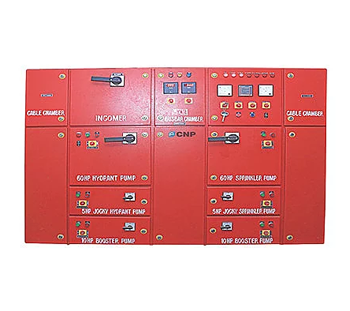Incorporating a fire-fighting pump into your retail shop is a crucial safety measure to protect your property, employees, and customers in the event of a fire emergency. Here's how you can effectively integrate a fire-fighting pump system:
-
Assessment and Compliance:
- Before installing a fire-fighting pump, conduct a thorough assessment of your retail shop's fire safety needs. Consider factors such as building size, occupancy load, fire hazards, and regulatory requirements.
- Ensure compliance with local building codes, fire safety regulations, and standards governing the installation and operation of fire-fighting pump systems.
-
Design and Installation:
- Work with a qualified fire protection engineer or contractor to design and install a fire-fighting pump system tailored to the specific needs and layout of your retail shop.
- Select an appropriate type of fire-fighting pump based on factors such as water supply source, flow rate, pressure requirements, and compatibility with existing fire suppression systems.
- Position the fire-fighting pump and associated equipment in a designated pump room or enclosure that provides adequate ventilation, accessibility, and protection from environmental factors.
-
Water Supply and Source:
- Identify suitable water sources for the fire-fighting pump, such as municipal water mains, on-site storage tanks, or dedicated fire hydrants. Ensure that the water supply meets the required flow and pressure specifications for fire suppression purposes.
- Install backflow prevention devices and other safeguards to protect the potable water supply from contamination or backflow in accordance with plumbing codes and regulations.
-
System Components and Accessories:
- Equip the fire-fighting pump system with essential components and accessories, including suction piping, discharge piping, valves, gauges, controllers, and alarms.
- Integrate fire detection and alarm systems with the fire-fighting pump to enable automatic activation and remote monitoring in response to fire incidents.
-
Maintenance and Testing:
- Establish a regular maintenance schedule for inspecting, testing, and servicing the fire-fighting pump system to ensure proper functioning and reliability.
- Conduct periodic flow tests, pump performance tests, and functional tests of control and alarm systems to verify compliance with regulatory requirements and manufacturer recommendations.
-
Training and Emergency Preparedness:
- Provide comprehensive training to staff members on the proper operation of the fire-fighting pump system, including activation procedures, emergency shutdown protocols, and maintenance tasks.
- Develop and implement an emergency response plan that outlines evacuation procedures, fire suppression strategies, and communication protocols in the event of a fire emergency.
-
Documentation and Record-Keeping:
- Maintain accurate documentation of the fire-fighting pump system, including design drawings, installation records, inspection reports, test results, and maintenance logs.
- Keep records readily accessible for inspection by regulatory authorities, insurance providers, and fire safety professionals to demonstrate compliance with applicable standards and regulations.
By integrating a fire-fighting pump into your retail shop and implementing comprehensive fire safety measures, you can mitigate the risks associated with fire hazards and protect the well-being of occupants and assets within your premises. Be sure to work closely with qualified professionals and authorities to ensure that your fire-fighting pump system meets all relevant safety requirements and standard.
